SWEDISH SOUTH ASIAN STUDIES NETWORK
International Maternal and Child Health (IMCH), Department of Women’s and Children’s Health, Uppsala University:
Postal address: Internationell mödra- och barnhälsovård,
Institutionen för kvinnors och barns hälsa, Akademiska sjukhuset,
SE-751 85 Uppsala, Sweden
Visiting address: Drottninggatan 4, 4 floor (from November
2004)
Fax: +46 (0)18 50 80 13
Web page: http://www.kbh.uu.se/imch/
Contact persons:
• Professor Gunilla
Lindmark, phone: +46 (0)18 611 59 98
• Professor Lars-Åke
Persson, phone +46 (0)18 611 92 94
The
Section for International Maternal and Child Health (IMCH) was formed
in 1999 as part of the reorganisation of the Medical Faculty at Uppsala
University. IMCH has several well-established research groups, in which
PhD and licentiate students work under the supervision of IMCH researchers.
Projects currently underway in these groups deal primarily with reproductive
and maternal health and health care, maternal and child nutrition, micronutrient
deficiencies, and breastfeeding, integrated management of childhood illness.
In addition, section staff are working to establish new research programmes
on community based rehabilitation, public health in humanitarian assistance.
Ongoing research connected to South Asia
During the period 2003–2009, the Dept. of Women’s
and Children’s Health was involved in a research collaboration programme with the University of Jayewardenapura, Sri Lanka. It included a major Sida-funded multidisciplinary research programme
on “Health
and Social Care for the Socially Marginalized People”. More information below.
As part of this programme, IMCH organised a workshop on ”Women and Migration in South Asia
– Health and Social Consequences” in collaboration with Sri Jayewardenapura University, Colombo, Sri Lanka, and SASNET in February 2009. The workshop was held in Colombo. More information about the workshop.
--------------------------------------------------
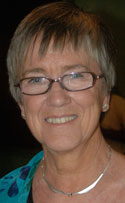 |
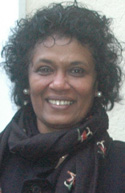 |
| Gunilla Lindmark and Kumudu Wijewardena. | |
Professor Gunilla Lindmark
(photo to the right) was given a research planning grant from SASNET in August, 2002, for a project called ”Promoting
adolescent reproductive health: Networking in Asia”.
The network intends to give an opportunity to promote and utilise knowledge
and contacts between participants from four South Asian countries (Sri
Lanka, India, Pakistan and Bangladesh) and Sweden. The idea of creating
a network originated from former Asian participants and facilitators in
Sida-sponsored courses on Sexual and Reproductive Health and Rights (SRHR),
organised by the department since 1992 (more information, see below).
The grant was used to organise a planning workshop in Colombo, Sri Lanka,
10–11 February 2003 (hosted by Professor Kumudu
Wijewardena chairman of the Department of Community Health,
University of Jayewardenapura (and formerly a visiting professor at IMCH),
and resulted in the setting-up of SANAH (South Asian
Network on Adolescent Health). The focal point of SANAH was decided
to be Sri Lanka, where a secretariat will be formed under the UNICEF Adolescent
Health Program Officer in Colombo, Dr Harischandra
Yakandawala, and with IMCH being the focal point for the Swedish
contribution to the network. The goal for SANAH’s activities will
be to achieve optimum health and development among adolescent in South
Asian sountries with emphasis on sexual and reproductive health. Further
contacts have later been taken between MAMTA
Health Institute for Mother and Child in New Delhi, India; the WHO
Regional office; and IMCH, to develop the SANAH network. Besides IMCH
has entered into a formal research and training collaboration
with the University of Jayewardenapura, and one of the topics is adolescent
health. More information about the Sri Lanka collaboration.
Kumudu Wijewardena was a Guest Professor at IMCH during the period
June–December 2009.
She
has had a special relation to SASNET, since she is a
member of SASNET’s South Asian Reference group, more
information.
In November 2005 Prof. Gunilla Lindmark received SEK 400 000 as a two-years (2006-07) research grant from Sida/SAREC for a South Asia related project titled ”Does counselling of abused women using primary level health care promoters help the women?”. More information on Sida funded South Asia related research projects in 2005.
-------------------------------
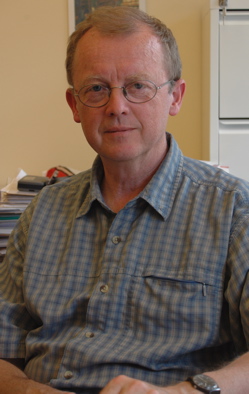 Professor
Lars-Åke Persson (photo
to the right) returned to the department in the Spring 2003, after
spending four years in Dhaka, Bangladesh, where he worked for the
International Centre for Diarrhoeal Disease
Research, Bangladesh (ICDDR,B), as manager for its Research division
on Public health. Persson has continued to be connected with ICDDR,B from
his new platform at Uppsala.
Professor
Lars-Åke Persson (photo
to the right) returned to the department in the Spring 2003, after
spending four years in Dhaka, Bangladesh, where he worked for the
International Centre for Diarrhoeal Disease
Research, Bangladesh (ICDDR,B), as manager for its Research division
on Public health. Persson has continued to be connected with ICDDR,B from
his new platform at Uppsala.
Prof. Persson heads a research programme on International Child Health and Nutrition
involving research institutions in Bangladesh,
Sweden, UK and USA. His main research interest deals with the
Prevention of low birth rates.
– Along with S M Ziauddin Hyder, Mushtaque R Chowdhury, Bo Lönnerdal, and Eva-Charlotte Ekström he has also made studies for the Research and Evaluation Division (RED), an independent unit within the framework of the organization BRAC, on ”Anaemia and iron deficiency during pregnancy in rural Bangladesh”. More information below.
– Lars-Åke Persson is also involved in research on the health hazards caused by arsenic contaminated wells in Bangladesh. This project is similarly carried out in collaboration with BRAC in Bangladesh, and with Professor Marie Vahter, at the Division of Metals & Health, Institute of Environmental Medicine, Karolinska Institutet, Stockholm (more information about projects she has been given research grants).
In November 2005 Prof. Persson received SEK 1.15 Million as a two-years (2006-07) research grant from Sida/SAREC for a project titled ”Effect of arsenic exposure through drinking water on reproductive outcome and child survival: epidemiological studies in Bangladesh”. More information on Sida funded South Asia related research projects in 2005.
– Lars-Åke Persson is also involved in another major research project on Poverty and Health, called ”Pre- and postnatal influence on chronic disease risk and immune function in early childhood: follow-up of the ‘MINIMat’ maternal food and micronutrient supplementation study in Bangladesh”. This project was given SEK 1.3 Million as a three-years grant (2006-08) from the Swedish Research Council in November 2005, and 1.05 Million from Sida/SAREC. More information about the project.
– In August 2003 Lars Åke Persson was awarded
25 000 SEK as a SASNET planning grant as a contribution for
a Network for Interventions against Maternal-Child
Malnutrition in South Asia, and he got another planning
grant for the same networking project in August 2004.
During a 4-year
period of work as director for the Public Health Sciences Division at
ICDDR,B, Dhaka, Lars-Åke Persson took the initiative
to initiate this network of scientists, and to develop specific intervention
studies. An international workshop on Low Birth Weight at ICDDR,B in
1999 formed the background, and from 2001 a large inter-disciplinary
intervention project is running, the MINIMat study (Maternal and Infant
Nutrition Interventions in Matlab). A first joint meeting of the network
was performed in October 2002, where the follow-up of functional consequences
of the interventions for mother and child were discussed, as well as
research training options for junior scientists from the region. The
research projects has mainly been funded by UNICEF and DfID, while the
networking and the research training lack organised funding and so far
has been jointly achieved by support from the different participating
departments and scientists. In May 2003 Persson returned to Sweden to
take up the position as professor and chair in International Child Health
at Uppsala University. He is keeping the role as the coordinator of the
joint effort. More
information on the network (as a pdf-file)
The planning grant was used for travelling to a network meeting in October
2003 in Dhaka, Bangladesh, where progress of the collaborative studies
was reviewed and plans for 2004 were developed. All different partners
in the network were participating. They include paediatricians, nutrition
epidemiologists, biochemists, health economists, toxicologists, public
health specialists, gender specialists and bacteriologists in Sweden,
in South Asia and Internationally.
During 2003 recruitment to the joint study was still ongoing, but during
2004 a phase of analysis and reporting is initiated. A renewed SASNET
planning grant for the same networking project was given in August 2004.
The grant was used for for meetings by parts of the group to analyse
and discuss the results from the MINIMat study. Mahfuzar
Rahman, Nazmul
Sohel, Shams El Arifeen and Ed
Frongillo visited Uppsala during the period March–June 2005.
In October 2006, Prof. Persson received SEK 600 000 as a grant from Sida’s Developing Country Research Council for a doctorate project titled ”The impact of violence against women on reproductive outcome and child survival. Studies in Nicaragua and Bangladesh”. More information about Sida’s 2006 grants.
Lars-Åke Persson participated in the SASNET workshop on ”The role of South Asia in the internationalisation of higher education in Sweden” held in Stockholm 28-29 November 2006, where he gave a presentation about IMCH experiences regarding recruitment of South Asian students in hard sciences in Sweden. Read Prof. Persson’s presentation at the workshop (as a pdf-file)
At the Sida-funded conference on current Swedish development research titled ”Meeting Global Challenges in Research Cooperation” that was jointly organised by Uppsala University and the Swedish University of Agricultural Sciences (SLU) in Uppsala 27-29 May 2008 (more information), Prof. Persson chaired panel no. 2 on ”Improving maternal health and infant child survival”. Several of the research projects carried out within the department were presented, among them a project on ”Equity in birth weight improved by a food and micronutrient supplementation programme:
a cluster randomized trial in Bangladesh”, carried out in collaboration with Eva-Charlotte Ekström and A. M. Waheedul Hoque from the same department;
Shams El Arifeen and DS Alam from ICDDR,B in Dhaka, Bangladesh; Yuki Shirioshi from UNICEF; and Zeba Mahmud from BRAC, Bangladesh. The study was conducted in two rural sub-districts; Kapasia and Chowdagram in Bangladesh
where a National nutrition programme including prenatal food and multiple micronutrient
supplementation was to start.
Abstract: Public health efforts to improve maternal and foetal nutrition has included prenatal iron-folate
supplementation. Recently multiple micronutrient supplementation (1) has been tested in trials
to improve impact on pregnancy outcome. So far, the effects on birth weight are mixed. In
settings with high prevalence of maternal malnutrition, food supplementation may also be
required (2). The effectiveness of food supplementations in a large scale setting is frequently
questioned. As energy and micronutrient deficiencies may co-exist, combinations of food and
multiple micronutrient supplements may be required for improved fetal growth. The objective is to evaluate the impact on birth weight of a combination of prenatal food and multiple
micronutrient supplementation in a large scale national programme setting.
-----------------------------------
Eva-Charlotte
Ekström is coordinating a project related
to prenatal food and micronutrient supplementation in Bangladesh.
In 2003 she received a planning grant from Sida/SAREC for a project
titled ”Are there sustained nutritional
benefits of prenatal food and micronutrient supplementation över
the reproductive cycle?”.
In
November 2005 PhD candidate Hanna
Eneroth received SEK 1.2 Million as a doctorate
project grant for two years (2006-07) from Sida/SAREC for a project titled
”Effects of exclusive breastfeeding
and prenatal micronutrient supplementation on micronutrient status of infants
where low birth weight is prevalent”. In November 2007, additional SEK 1.2 million was given for the period 2009-09 by Sida's
Developing Country Research Council (U-landsforskningsrådet) for the same project. More information about the Sida grants 2007.
Project abstract: abstract In a setting with high prevalence
of intrauterine growth restriction we will assess whether exclusive breastfeeding(EBF)
results in better infant micronutrient(MN) status and if prenatal supplement
with multiple MN provide benefits in addition to iron-folic supplement.
MN deficiencies are common in the study population and in infancy they
can lead to impaired immune function, impaired cognitive and neurological
development and restriction of growth. 1000 samples of breast milk and
blood at 6 months have been collected in a randomised food- and MN supplementation
and EBF promotion trial in Bangladesh. It is expected that EBF will increase
MN intake and decrease MN requirements and losses due to reduced infections.
Prenatal multiple MN will improve MN status at birth and increase the content
of selected MN in breast milk. Thus the interventions will result in an
optimized infant MN status.
This project was also presented at the Sida-funded conference on current Swedish development research titled ”Meeting Global Challenges in Research Cooperation” that was jointly organised by Uppsala University and the Swedish University of Agricultural Sciences (SLU) in Uppsala 27-29 May 2008 (more information). The collaboration partners in the project also include Dr. Iqbal Kabir and Dr. Mohammad Bakhtiar Hossain from the Child Health Unit at ICDDR,B in Dhaka, Bangladesh; and Prof. Bo Lönnerdal, Department of Nutrition, University of California, Davis, USA.
In June 2006 Dr. Ekström received SEK 600 000 as a two-years grant from Sida’s Support to HIV/Aids research programme, for a project titled ”Role of infant feeding peer counsellors in prevention of mother-to-child-transmission of HIV”. More information.
--------------------------------------
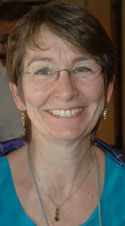 Associate Professor Pia
Olsson has coordinated a research project titled
”Adolescent
childbearing and abortion in Sri Lanka. A qualitive interview investigation”.
In November 2005 she received SEK 600 000 from Sida/SAREC as a
two-years grant (2006-07) for this project. More
information on Sida funded South Asia related research projects
in 2005.
Associate Professor Pia
Olsson has coordinated a research project titled
”Adolescent
childbearing and abortion in Sri Lanka. A qualitive interview investigation”.
In November 2005 she received SEK 600 000 from Sida/SAREC as a
two-years grant (2006-07) for this project. More
information on Sida funded South Asia related research projects
in 2005.
The project has been carried out in collaboration with Prof. Kumudu Wijewardena, Department of Community Health,
University of Jayewardenapura, and it was also presented at the Sida-funded conference on current Swedish development research titled ”Meeting Global Challenges in Research Cooperation” that was jointly organised by Uppsala University and the Swedish University of Agricultural Sciences (SLU) in Uppsala 27-29 May 2008 (more information).
Abstract: Induced abortion in Sri Lanka is permitted only on strict maternal health
indication. However a great number of women undergo abortions on other indications at
relatively well established clinics. Single motherhood is not culturally accepted and there is no
state welfare system to support single mothers. The process of deciding on abortion is unclear and
factors contributing to the decision are unexplored from the women’s perspective. The aim of the study was to describe the circumstances of becoming pregnant, the process of
making the decision on abortion and the reasons for seeking abortion in a sample of unmarried
women in Colombo, Sri Lanka. Participants were recruited from a centre for reproductive health
services in Colombo, where trained doctors conducted terminations under sterile conditions, up to
12 gestational weeks. Individual qualitative research interviews were carried out with 19 women,
18-30 years of age. Ethical clearance was obtained and the informants gave their informed
consent.
Results: Contraceptive use and knowledge was low among the participants. The circumstances of
becoming pregnant included both consensual and non-consensual sex. Eighteen of the women
were pregnant by their boyfriends and one by a cousin. The process of deciding to terminate the
pregnancy included consideration of multiple and interrelated socio-cultural, economic and
religious factors. Four basic patterns of the process of deciding to have an abortion were
identified. The first and most prominent was that the parents insisted on abortion and the
woman, or couple, had to obey. The woman’s opinion carried less weight than her parents. A
second pattern was that the partner insisted on abortion and the woman hesitated, but later
agreed without informing her parents. A third pattern was of the couple deciding together after
discussing between themselves, and not involving parents. A fourth pattern was the woman
deciding with support from her parents after having convinced the partner, or without informing
the partner, about the decision. Prominent reasons for seeking abortion were the preservation of
the family honour, the stigma of single motherhood, the child being raised without a father and
economic aspects.
Conclusion: The family’s honour is an important factor when deciding on abortion. Women’s
own opinion is not always honoured in this process. To diminish induced abortions among
unmarried women, contraceptive use needs to be facilitated and a social support system for single
mothers established.
Pia Olsson has also been involved in the major Sida funded projects on reproductive and child health in India, that IMCH administers in Rajasthan, India (more information). Dr. Olsson has mada s study on ”Adolescents’ perceptions on sexuality and reproductive health risks.
A qualitative study in rural Rajasthan, India”. It was presented at the Sida-funded conference on current Swedish development research titled ”Meeting Global Challenges in Research Cooperation” that was jointly organised by Uppsala University and the Swedish University of Agricultural Sciences (SLU) in Uppsala 27-29 May 2008 (more information).
Abstract:In rural Rajasthan female literacy is low, early and arranged marriages are
practiced, maternal mortality is high and the HIV epidemic is advancing. Unmarried adolescents’
sexuality is not culturally recognized which make them vulnerable for reproductive health
problems. Adolescents’ perceptions are important when designing adequate and acceptable sexual
and reproductive health (SRHR) programs.
The aim of the study was to describe adolescents’ perceptions on sexuality, pregnancies and
STI/HIV as preparation for SRHR interventions in rural Rajasthan. Both adolescents boys and girls turned out to discuss sexual issues with great openness in the
FGDs. They described premarital sexuality as important in their lives. It was reported that most
boys had sex secretly with girlfriends or with girls they paid. Boys experienced double roles as
boyfriends and guardians of sisters’ and family reputation. The adolescents got information on
sex and reproduction from media and friends but seldom from parents. They wanted their parents
to have more knowledge about SRHR issues and to be more open to discuss dilemmas of
traditional norms on SRHR. Premarital pregnancies were perceived as dangerous but worth the
pleasure of having sex, according to the boys who usually got out of the problem with the honor
intact. Girls were also reported to enjoy sex but also to be punished by their families in case of a
pregnancy since she dishonored the entire family. The risks of late abortions were highlighted by
girls. The adolescents had heard of contraceptives but such were seldom accessible. Superficial
knowledge and misconceptions about STI/HIV were revealed for example combining vaginal wash
with anti-malarial drugs to prevent STI. Boys perceived that girls with knowledge about STI/HIV
were difficult to attract for sex.
Conclusions and recommendations: Traditional norms that prohibit premarital adolescent
sex did not appear to prevent unmarried adolescents having sex but as hindrances for safe sex
practices. Adolescent SRHR programs should address traditional gender norms, adolescent
sexuality, prevention of pregnancies and STI/HIV. Involvement of parents is crucial for the
success of adolescent SRHR programs.
Pia Olsson is now (2011) involved in a new Partner driven Indo-Swedish collaboration project on Infant and Young Child Feeding. More information below. ![]()
---------------------------------------------
PhD Shams
El Arifeen, gender specialist and sociologist
from Bangladesh, is taking part in the Networking programmes
(sponsored by SASNET) mentioned above. Arifeen is involved with
a study of what is called MINIMat
(Maternal and Infant Nutrition Interventions in Matlab),
where 4,500 women in the Matlab District of Bangladesh have been randomized
to different forms of nutritional and trace element supplement during
pregnancy. He is now working at ICDDR,B in Dhaka. He is participating
in the research project about the health
hazards caused by arsenic contaminated wells in Bangladesh, along with
Prof. Lars-Åke Persson,
and Prof. Marie Vahter, Division
of Metals & Health, Institute
of Environmental Medicine; Karolinska Institutet. More
information.
Dr. Arifeen is involved in the project on ”Equity in birth weight improved by a food and micronutrient supplementation programme”, presented above.
PhD Ruchira
Naved, Child health epidemiologist from Bangladesh,
is responsible for a study on Violence against women in Bangladesh. It
is part of coordinated studies carried out in several countries around
the World by the World Health Organization, WHO. IMCH is involved with
this study and also planning for follow-up studies.
In November 2004 the department received a major two-years grant for this
research project on ”Impact of violence
against women on reproductive outcome and child survival. Studies in Nicaragua
and Bangladesh”. More information.
Dr. Anisur Rahman
has worked on arsenic exposure in pregnancy and effects on foetus and
child. Dr. Rahman has also been affiliated to the Division
of Metals & Health, Institute of Environmental Medicine; Karolinska
Institutet, Stockholm.
Anisur Rahman defended his doctoral dissertation project titled ”Prenatal Arsenic Exposure and Consequences for Pregnancy Outcome and Infant Health: Epidemiological Studies in Bangladesh” on Tuesday 19 May 2009. The faculty opponent was Prof. Gunnar
Nordberg, Dept of Public Health and Clinical Medicine, Umeå University.
Abstract: The aim of this thesis has been to analyse possible effects of prenatal arsenic exposure on foetal and infant health. The setting is Bangladesh, where two cohorts were studied, both part of a health and demographic surveillance system in Matlab. A historical cohort 1991–2000 included 29,134 pregnant women with information on drinking water sources and arsenic testing of tube well water. A prospective cohort study included pregnant women 2002–2003 where urinary arsenic concentrations were assessed twice during pregnancy; 2,924 women and their pregnancy outcomes were evaluated for foetal loss, perinatal and infant mortality; 1,578 mother-infant pairs were analysed for size at birth; and 1,552 were analysed for morbidity during infancy. More information.
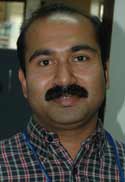 PhD candidate Waheedul Hoque (photo to the right)
is working on effects nutrition interventions in pregnancy on the women’s
nutritional status, and possible effects into the next pregnancy. Dr. Hoque, also working at ICDDR,B in Dhaka, is involved in the project on ”Equity in birth weight improved by a food and micronutrient supplementation programme”, presented above.
PhD candidate Waheedul Hoque (photo to the right)
is working on effects nutrition interventions in pregnancy on the women’s
nutritional status, and possible effects into the next pregnancy. Dr. Hoque, also working at ICDDR,B in Dhaka, is involved in the project on ”Equity in birth weight improved by a food and micronutrient supplementation programme”, presented above.
PhD candidate Ashraful Islam Khan is working on a dissertation project entited ”The effect of prenatal nutrition interventions on childhood growth and body composition at 5 years. The MINIMat trial in rural Bangladesh”. He is supervised by Prof. Lars Åke Persson, and Dr Iqbal Kabir, Clinical Sciences Division, ICDDR,B, Dhaka. On 9th May 2011 he will do his half-time seminar. More information.
Collaboration projects with Sri Lanka
Project about health and social care for the socially marginalized people
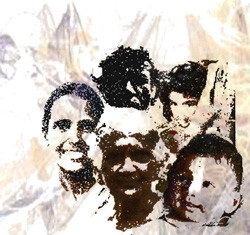 Under a SIDA/SAREC grant a multidisciplinary research programme
on “Health
and Social Care for the Socially Marginalized People” has been
carried out in collaboration between IMCH and the Dept. of Community
Medicine at the University of Sri Jayewardenepura during the period 2003–2010.
Under a SIDA/SAREC grant a multidisciplinary research programme
on “Health
and Social Care for the Socially Marginalized People” has been
carried out in collaboration between IMCH and the Dept. of Community
Medicine at the University of Sri Jayewardenepura during the period 2003–2010.
The project was initiated after a 2002 call by the University Grants Commission of Sri Lanka for research proposals from all universities to be funded under a Sida/SAREC agreement. The proposal submitted by the Faculty of Medical Sciences University of Sri Jayewardenepura under the heading Health and Social Care for Socially Marginalized People was one of the new projects selected. The research programme was planned as a collaboration between Sri Jayewardenepura University, Department of Community Medicine and Family Medicine, and Uppsala University, Department of Women’s and Children’s Health, International Maternal and Child Health (IMCH), in Sweden because of already existing cooperation and personal contacts. The program activities started 2004.
The final report was published in August 2010.
Read the report (as a pdf-file) ![]()
The programme has been coordinated by Prof. Gunilla Lindmark at IMCH, and Prof. Kumudu
Wijewardena,
Dean for the Faculty of Graduate Studies, Sri Jayewardenapura University, Colombo, Sri Lanka (who previously were also involved
in IMCH’s South Asian Network on Adolescent Health project,
described above – read about it).
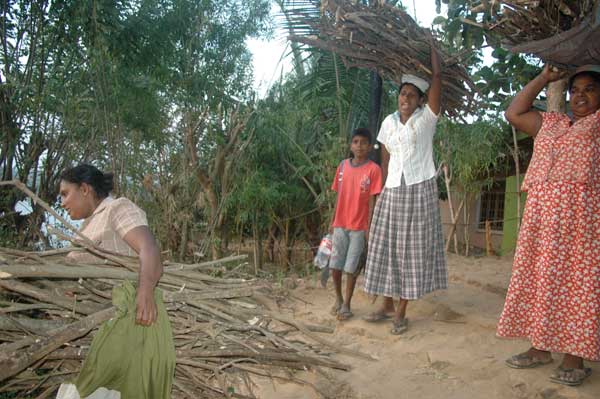 Project description: Emphasis has been given for gender
equity, violence against women and children, social issues related to
Middle East migrant female workers, and issues of war widows and orphans.
Swedish researchers and graduate students work in close collaboration
with the Sri Lanka group and implement studies together in Sri Lanka;
related to social and health issues of socially marginalized people.
Project description: Emphasis has been given for gender
equity, violence against women and children, social issues related to
Middle East migrant female workers, and issues of war widows and orphans.
Swedish researchers and graduate students work in close collaboration
with the Sri Lanka group and implement studies together in Sri Lanka;
related to social and health issues of socially marginalized people.
A number of PhD thesis projects were carried out under
the project.
•
Dr Lukumar: Mental Health Of Adolescent School
Children (14–15 years) in Jaffna District and some of their Psychosocial
correlates.
•
Dr M V F Jayasuriya: The Prevalence of intimate partner
violence in Western Province of Sri Lanka, Risk Factors Coping Mechanisms
and hospital based intervention programme.
•
Dr A Samaranayaka: The
effects of an intervention to promote competence in providing quality
care at labour.
•
Dr H Waidyasekara: Menopausal symptoms, quality of
life, postural balance and cognitive functions in community based
population of Sri Lankan Women.
•
Dr D C Hewage: The effect of overseas
maternal employment on the Executive Functions of Children.
•
Dr S W Wimalasekara: A Study of cognitive Function and Iron Nutritional
Status in Adolescent Females in Sri Lanka.
•
Dr B C V Senarathana: Psychological Health of the Migrant Workers’ Children.
•
Dr
Amanthi Bandusena: Children aged eighteen months at Risk of Mental Disability
in the Colombo District: Validation of a screening tool, their Parents’ Perceptions
on their Roles and Needs in Care Giving and Facilities currently available
for them.
• Dr Arul Kumaran: Perinatal Mortality Rate, Causes, Service
Facilities and Mothers Perception in District of Sri Lanka.
•
Dr
P Jayathilaka: Prevalence and Risk Factors for Adolescent Violence
Behavior and to assess effects of an intervention to reduce Violence
Behavior in School Children living in Colombo South Area.
•
Dr Nayana
Fernando: Influence of Parents Alcoholism on their Adolescent Children
Health.
Following qualitative studies were carried out under SIDA/SAREC
grant by senior researchers in the department of Community Medicine:
1. Health and social issues of single pregnant women
2. Health and social
issues of single women under going termination of pregnancy.
3. Health
and social issues of commercial sex workers (at a rehabilitation centers).
Within the framework of the ‘Health and Social care
for Socially Marginalised People’ project, IMCH and the Dept. of
Community Medicine at the University of Sri Jayewardenepura jointly organised
an International Conference on Effective Interventions
for Domestic Violence against Women, in Colombo, Sri Lanka, 9–11 May 2006. The conference
had the theme ”Strategies to Combat” and with two days of sessions dealing
with the current situation – including a presentation by Dr. Henrica
Jansen of the WHO multi-country study on Women’s health and domestic
violence against women; Regional experiences – from Sri Lanka, India,
Pakistan and Philippines. On the final day a conference titled ”What
Interventions Work?” was held.
Several IMCH researchers came for the
conference, including Prof. Gunilla Lindmark,
Dr. Ruchira Tabassum Naved, and Dr. Pia
Axemo – senior
lecturer at the department. Prof. Barbro Wijma and
Dr. Katharina
Svanberg from the Division of
Gender and Medicine,
Faculty of Health Sciences, Linköping
University, also participated in the conference, presenting results from
their NORVOLD study (the Nordic Research
Research Initiative on Violence against Women). See
the full conference programme (as a pdf-file)
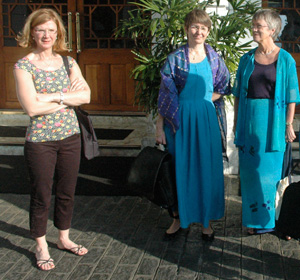 As part of this programme, IMCH also organised a workshop on ”Women and Migration in South Asia
– Health and Social Consequences” in collaboration with Sri Jayewardenapura University, Colombo, Sri Lanka, and SASNET in February 2009. The workshop was held in Colombo. More information about the workshop.
As part of this programme, IMCH also organised a workshop on ”Women and Migration in South Asia
– Health and Social Consequences” in collaboration with Sri Jayewardenapura University, Colombo, Sri Lanka, and SASNET in February 2009. The workshop was held in Colombo. More information about the workshop.
On Wednesday 16 December 2009, a seminar to share experiences from the programme was organised. During the seminar, presentations were given by the coordinators Kumudu Wijewardena and Gunilla Lindmark, but also from several of the researchers involved in the research programme, e g Pia Axemo, Tord Naessén, Pia Olsson and Aida Aragao Lagergren. See the seminar program.
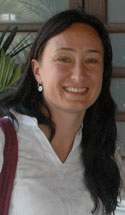 Malin Jordal (photo to the left), originally a Norwegian
nurse, has carried out research on Masters level in Sri Lanka. Her study focuses on the reproductive
health of a particularly vulnerable group, namely, young women working
in the Free Trade Zones of Sri Lanka. The research on this topic is
being done at the specific request of Professor Wijewardene and is carried out under the guidance of Pia Olsson plus a member of
the University of Sri Jayewardenepura staff.
Malin Jordal (photo to the left), originally a Norwegian
nurse, has carried out research on Masters level in Sri Lanka. Her study focuses on the reproductive
health of a particularly vulnerable group, namely, young women working
in the Free Trade Zones of Sri Lanka. The research on this topic is
being done at the specific request of Professor Wijewardene and is carried out under the guidance of Pia Olsson plus a member of
the University of Sri Jayewardenepura staff.
Abstract: This qualitative study aims to explore and describe female factory workers’ perception of reproductive health issues in Free Trade Zones in Sri Lanka. Thirteen female factory workers from two Free Trade Zones in Sri Lanka were interviewed using in-depth and semi structured interviews in order to gather as great a range and depth in perceptions as possible. Qualitative content analysis was used to analyse the interview transcripts, and eight categories and twenty-nine sub-categories were identified during the analysis. The results show that female factory workers in FTZ in Sri Lanka face various challenges, concerns.
FTZ can be seen as melting pot where female migrate for work from various places in Sri Lanka due to lack of working possibilities near their homes. The factory workers in this study were positive regarding the ability to earn their own income in a poor society. However, the changed family structures, where these unmarried women live without parental protection in a vulnerable society, created anxiety regarding various aspects.
INFORM (International Network for Online Resources & Materials)
In 2003, information activities at IMCH were consolidated into INFORM (International Network for Online Resources and Materials), with the aim of delivering health information training not only in Sweden but also onsite in lower-income countries. Among the first countries to arrange INFORM workshops was Sri Lanka, where four workshops were run at the University of Sri Jayewardenepura between 2003 and 2006.
In addition, INFORM continued to develop and deliver training for ITPs associated with IMCH. One of these was the ITP on child survival held at Uppsala in the spring of 2007, with participants from eight Asian countries, including Afghanistan, Bangladesh, India, Nepal, and Pakistan. Another was the autumn 2007 ITP on strengthening midwifery competence, which was organized by Karolinska Institute in collaboration with the Swedish Association of Midwives and IMCH. The midwives participating in the training were from Afghanistan, Bangladesh, India, Nepal, Pakistan, and Sri Lanka, as well as five other Asian countries.
 The programme is led by IMCH researcher Dr Martha
J Garrett (photo), and Anders Wändahl, a librarian at Karolinska Institutet in Stockholm.
The programme is led by IMCH researcher Dr Martha
J Garrett (photo), and Anders Wändahl, a librarian at Karolinska Institutet in Stockholm.
INFORM’s first training in South Asia was commissioned by Professor Kumudu
Wijewardene at the University of Sri Jayewardenepura in Sri Lanka (more about Prof. Wijewardena, see above). INFORM trainers have also been involved in information training in other SASNET countries, including India (for the Reproductive and Child Health and Rights Network in Jaipur, Rajasthan), Afghanistan (for the Afghanistan Midwives Association), and Pakistan (for the Higher Education Commission at Dow Medical University in Karachi and for the Ministry of Health at the Health Services Academy in Islamabad). Grants from SASNET have helped to finance some of this work.
Outside the SASNET region, INFORM has provided information training in China for the Raoul Wallenberg Institute—on the topic of international law and human rights—and in Vietnam, where INFORM-trained master trainers are now providing workshops for doctors throughout the country.
INFORM’s next major activity will be a regional programme in Asia. Health professionals working on reproductive health and maternal-and-child health in 10-12 Asian countries, mostly in south Asia, will receive intensive training about where to find free, high-quality materials for teaching, clinical practice and policy formulation. After the training, they will carry out their own information projects and also exchange information through an online forum. INFORM has invited SASNET to be a partner in the programme.
More information about INFORM can be found online at the programme’s new website at http://www.inform-network.org.
Some of INFORM’s many sourcebooks are also available at the same site and can be downloaded free-of-charge.
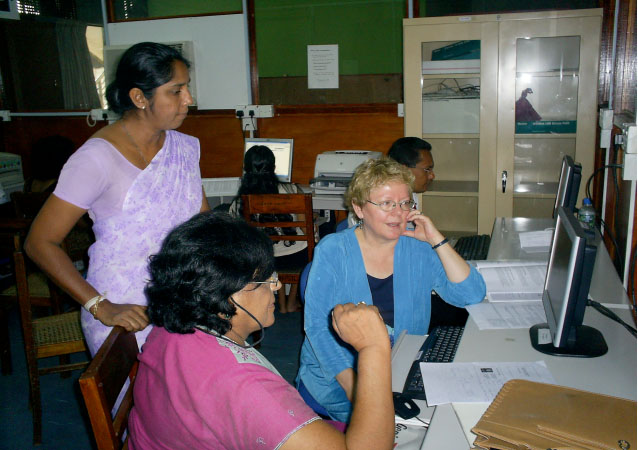 SASNET has been strongly involved in the development of INFORM.
SASNET has been strongly involved in the development of INFORM.
Already in August 2002, SASNET provided a planning grant to Dr. Martha Garrett,
to enhance this educational collaboration project, that was
then planned together with Professor Wijewardene. This project aimed to give master’s students
at IMCH the possibility to carry out their data collection for their
master’s
studies in Sri Lanka, under the local supervision of that university’s
medical faculty.
The first data collection to be done under the arrangement was carried
out during the spring term 2004 by Ms. Alemnesh
Mirkuzie, an Ethiopian nurse in the Master’s Programme
in International Health at IMCH. The research led to a master’s
report entitled ‘Health Care Providers’
Perceptions of Adolescent Reproductive Health Problems in Colombo, Sir
Lanka’. A scientific article based on the research and
co-authored by Ms Mirkuzie, Professor Wijewardene,
and Dr Pia
Olsson (the IMCH advisor) was being prepared
for publication. A workshop was held in Sri Lanka in 2006, see photo.
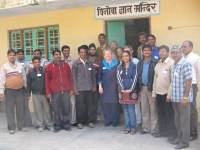 In August 2007, Dr. Garrett received SEK 150 000 as another SASNET Planning grant for an educational programme, now to set up a ”Regional Networking for Information on Child Survival”. See
the full list of SASNET planning grants 2007.
In August 2007, Dr. Garrett received SEK 150 000 as another SASNET Planning grant for an educational programme, now to set up a ”Regional Networking for Information on Child Survival”. See
the full list of SASNET planning grants 2007.
INFORM was also able to get support from
several other funding sources in addition to the SASNET planning grant. This
made it possible for Dr. Garrett and her team to lead three on-site workshops (see photo from an India workshop in 2009), and do
network-building in Afghanistan and Pakistan. Later also,
through another arrangement, training in India.
Read the final report for the SASNET funded INFORM regional project (as a pdf-file)
An
INFORM team
were supposed to visit Pakistan early 2010 for two more workshops if the
situation at the universities allows it. Key persons committed
to the network now work in countries throughout Asia, and new
proposals for support are given to international funding agencies.
Other collaboration projects:
The arrangement by which IMCH master’s students travel to Sri Lanka for their data collection is only one of several ways in which IMCH is now collaborating with the University of Sri Jayewardenepura. Other collaborations that have developed include the following:
• Staff from the two institutions are working together within the Southeast Asian collaborative research network on adolescent sexuality.
• IMCH is a major partner in a research capacity building programme at University of Sri Jayewardenepura on social aspects of health. The programme, which is financed by Sida and will extend over several years, involves the exchange of teachers, researchers, and students between the two institutions, with some Sri Lankan students earning PhD degrees on a ‘sandwich’ arrangement. Five young Sri Lanka doctors have already spent time at IMCH this year, taking formal courses and also receiving guidance in their research from IMCH research staff.
• Research on the war in Sri Lanka, focused on the role of the foreign NGOs and foreign medical volunteers, is being done through IMCH’s Centre for Public Health in Humanitarian Assistance. The researcher, who has been to Sri Lanka to carry out interviews with the volunteers, is Magdalena Bjerneld, coordinator of the Centre and a registered doctoral student in the medical faculty at Uppsala University.
Ms. Bjerneld defended her doctoral dissertation titled ”Images, Motives, and Challenges for Western Health Workers in Humanitarian Aid” on Wednesday 17 May 2009. The faculty opponent was Prof. Lars Dahlgren, Division of Epidemiology and Public Health Science, Umeå University. The thesis presents how humanitarian aid workers were attracted, motivated, recruited, and prepared for fieldwork, and how they reported their work experience directly from the field and when they returned home. Data were derived from interviews with experienced aid workers, focus group discussions with presumptive aid workers, analysis of letters from aid workers in the field on MSFs homepages in Europe, and from interviews with recruitment officers at some of the main humanitarian organisations. More information.
Collaboration projects with India
In March 2005 the Swedish Government decided on a new country
strategy for India for the period 2005-2009. The strategy implied a new
kind of co-operation between Sweden in India mainly focusing on technical
assistance and building partnerships of mutual interests between Swedish
and Indian actors. The focus areas were: Respect for democracy and human
rights; Environmental protection that will benefit the poor; and Scientific
cooperation in selected areas that will benefit the poor.
In light of the comparative advantage that Sweden has in Sexual and Reproductive
Health & Rights, Children's Rights and HIV/AIDS, the Swedish International
Development Cooperation Agency, Sida, therefore supported and allocated funds
to a number of projects and partnerships involving Swedish universities.
IMCH has been involved in two of these projects being funded by Sida:
Project name: Integrating social support for reproductive and child health and rights, Phase II
Sida contribution: SEK 15 million for the period June 2005 – June 2010
Project partners: A network of ten NGOs in Rajasthan viz. Sara, Prayatna Sansthan, Tilonia Shodh evam Vikas Sansthan, Vihaan, Vishakha, Manthan, Kumarappa Institute of Gram Swaraj, Family Planning Association India, Humana People to People, and with its secretariat at Aadhar Research Institute in Jaipur, are working together for reproductive and child health and rights (RCHR).
Project description: The program has developed links with the International Maternal and Child Health (IMCH), Uppsala University, Sweden. The project attempts to respond to the health needs of the poor by generating a demand for health services among women, men and adolescents and also strengthening links with the public health system and local governance to respond to these needs. The key programme strategies include strengthening and developing an approach of networking, community participation in local governance impacting RCHR, institutional linkages and advocacy for influencing policy environment to improve access to quality and gender-sensitive health services in rural areas and for everyone to realise their right to health.
In view of the competitive edge of IMCH, in addition to providing technical support and guidance to the network, the partnership will undertake community-based research and thereby increase knowledge and understanding of key issues in maternal and child health in resource-poor settings.
By end of the project period, community groups at village and Panchayat levels will be strengthened to generate demand and ensure that reproductive and child health services reach the target groups as their right. The project will also ensure that sustainable institutional linkages are formed between the various key stakeholders along with an enabling policy environment, and that the network is firmed up in terms of structure, functioning and capacity.Project name: Increasing Access to Comprehensive Abortion Care Services in India
Sida contribution: SEK 10 million for the period December 2005 – June 2009
Project partners:The project is implemented by a consortium of organisations/institutions that include Centre for Enquiry into Health and Allied Themes (CEHAT), the Federation of Obstetric and Gynecological Societies of India (FOGSI), FPA India/International Planned Parenthood Federation, International Unit Maternal and Child Health (IMCH) Uppsala University, Indian Society of Midwives, Population Council and Ipas, who also coordinates the programme.
Project description: The consortium members are established organisations involved in working on safe abortion issues either nationally, regionally or globally. Project brief The overall goal of the project is to increase access to legal, safe and comprehensive abortion services, that also includes post-abortion family planning services, in the public health system with focus on the rural poor and thereby contribute to the reduction in maternal mortality and morbidity and enhance women's ability to exercise their SRHR at both public and private health delivery systems in the country.
The project also aims to strengthen collaborations with Swedish institutes/organisations in the area of advocacy, medical abortion and involvement of midlevel providers. Given the controversy related to abortions, the collaborative effort build on the strengths and capacities individual members/organisations, will gain in advocate efforts. Apart from developing effective district level model for comprehensive abortion care in the public health system for improving supply-demand of safe and legal abortion services, the project will develop pilot models for expanding the provider base and technology choices for safe abortion services and thereby enable changes in policy, legal and implementation framework. Moreover, considering the involvement of a variety of organizations, a significant outcome could be the strengthening of partnerships and developing a common understanding and vision for a long term impact. The Packard Foundation co-funds the project.
Educational programmes related to South Asia
Master's Programme in International Health
The Master's Programme in International Health is, currently
open only to persons holding a medical or nursing degree equivalent to
120 Swedish credits. The curriculum consists of two courses plus a research
project, usually carried out in a low-income country.
IMCH also offers the following within its education:
• The Diploma line, that started in 2001, which includes the courses International health and Work-related studies for field assignment
• Global medicine for medical and nursing students
• A variety of free-standing courses such as Health futures, Information seeking in medicine, Preparation for short-term medical assignments in low-income countries, Children in especially difficult circumstances (CEDC), and Community based rehabilitation (CBR).
• Contracted courses, such as Rapid need assessment in humanitarian assistance, Sexual and reproductive health and rights, and Breastfeeding
Courses on Sexual and Reproductive Health and Rights (SRHR)
The department has run International training programmes
on on Sexual and Reproductive Health and Rights since 1992. The participants
have been gynaecologists and midwifes who after an initial course in Sweden
carried out practical application work/projects in their home institutions.
Over the years many South Asian participants have chosen to elaborate
projects on different aspects of adolescent health. Professor Gunilla
Lindmark has been in charge of these Sida-sponsored courses, in
collaboration with Dr Islam Monir from the
World Health Organisation WHO in New Delhi, and Professor Kumudu
Wijewardena from the Faculty of Medical Science at the University
of Jayewardenapura, Sri Lanka.
The department also runs other contracted courses on topics such as Public
Health in Humanitarian Assistance.
Library service and International collaboration
In support of its educational activities, IMCH maintains
a library on health care in low-income countries, the largest such library
in Scandinavia. The literature can be searched through Libris.
IMCH staff members do consultancy work for national and international
organisations including WHO, UNICEF, and the World Bank. The section also
collaborates with other institutions in Sweden and throughout the world.
In South Asia collaborative partners include the Christian
Medical College in Vellore, India; BRAC;
and Dhaka University in Bangladesh.
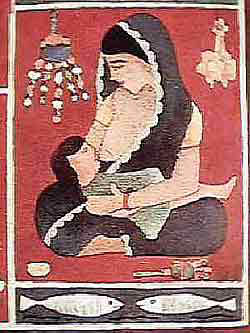 International
Nutrition Research Group
International
Nutrition Research Group
 For 19 years, until
August 2004, Associate Professor Ted
Greiner was working at the Dept. of Women’s and Children’s
Health. He was Head of the separate International Nutrition Research Group.
He now works as a Senior Nutritionist at the Programs
for Appropriate Technologies in Health (PATH), Washington DC, USA.
The International Nutrition Research Group has been amalgamated into Prof.
Lars-Åke Persson’s research group on International
Child Health and Nutrition
For 19 years, until
August 2004, Associate Professor Ted
Greiner was working at the Dept. of Women’s and Children’s
Health. He was Head of the separate International Nutrition Research Group.
He now works as a Senior Nutritionist at the Programs
for Appropriate Technologies in Health (PATH), Washington DC, USA.
The International Nutrition Research Group has been amalgamated into Prof.
Lars-Åke Persson’s research group on International
Child Health and Nutrition
Ted Greiner has in the past worked in and published a lot of material
on Bangladesh and India.
He has also been the team leader for a Sida evaluation and
later for a review of its support to the Integrated Child Development
Services in India, resulting in ”Reaching Out to Children in Poverty.
The Integrated Child Development Services in Tamil Nadu, India” (contributions
by Greiner, Brolin, Mittal, Puri, Paulraj and Gupta A) – Swedish
International Development Cooperation Agency Evaluation 00/02, 2000. A
summary is found in Sida
Evaluations Newsletter 3/00 (pdf-file).
Greiner represents Sida at ACC/SCN
(The United Nations Standing Committee on Nutrition); and works as a
co-ordinator for the Research Task Force, World Alliance
for Breastfeeding Action.
Ted Greiner is currently working as Professor of Nutrition at Hanyang University in Seoul, South Korea.
See Greiner’s
personal web page. ![]()
PhD Viveka Persson was a member of the International Nutrition Research Group, and was engaged in research on South Asia. She carried out a school based nutritional study in Bangladesh on the effect of anthelminthic treatment on vitamin A status during childhood. Viveka Persson defended her doctoral dissertation on 8 October 2001. The title of the thesis was ”Vitamin A intake, status and improvement using the dietary approach, Studies of vulnerable groups in three Asian countries”. The three Asian countries were India, Bangladesh and Indonesia. Abstract to be found at Uppsala University´s web site. Viveka Persson is now working at Sida/SAREC.
Centre for Public Health in Humanitarian Assistance (PHHA)
The Centre for Public Health in Humanitarian Assistance, connected to International Maternal and Child Health, Dept
of Women's and Children's Health, was established at the end of 2001,
in response to clearly recognized needs and demands in Sweden for training,
technical advice, research and a resource centre in this specialized area.
Disaster affected populations, refugees and displaced persons are amongst
the most disadvantaged in the world. They are often dependent on humanitarian
assistance for their survival. Globally, humanitarian crises are growing
in scale and complexity. Most disasters have multiple impacts affecting
different sectors and therefore require a multi-sectoral and multi-disciplinary
response.
The Centre linked up with other disciplines that do not normally sit
together, particularly those of Public health and nutrition, Economics,
Disaster management, Peace and conflict studies, Cultural anthropology
and Trans-cultural Psychiatry. While the main focus of the Centre is on
Public Health in Humanitarian Assistance, it will link very closely with
these other disciplines to facilitate a multi-disciplinary approach to
disaster related studies.
PHHA was involved in running NOHA, an Erasmus Mundus Programme on International
Humanitarian Aid.
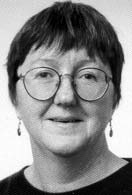 Dr. Patricia
M Diskett worked for some time at the Centre. Originally educated as a
district nurse and midwife, she received her MSc in 1987, and in 1997
she defended her doctoral dissertation on ”Evidence-based
decision-making and managerial chaos in population displacement emergencies.
A Case Study of Rohingya Refugees in Bangladesh 1992-93”
at the Liverpool School of Tropical
Medicine.
Dr. Patricia
M Diskett worked for some time at the Centre. Originally educated as a
district nurse and midwife, she received her MSc in 1987, and in 1997
she defended her doctoral dissertation on ”Evidence-based
decision-making and managerial chaos in population displacement emergencies.
A Case Study of Rohingya Refugees in Bangladesh 1992-93”
at the Liverpool School of Tropical
Medicine.
She has worked for Oxfam for many years, eventually as coordinator of
the Emergency Public Health Team for Oxfam’s UK office. As a Health
Coordinator for the United Nations High Commission for Refugees, she had
responsibility for coordinating a health programme involving over 20 NGOs
and serving over a quarter million refugees. Dr Diskett has had field
assignments in Honduras, Somalia, Brazil, Bangladesh, Nepal, and most
African countries. Her areas of expertise include disaster preparedness,
prevention, mitigation, management, response and rehabilitation; population
displacement emergencies; complex emergencies; drought, famine and floods;
emergency health care systems and policies; disease and epidemic control
strategies: nutrition and food security, international relief system;
support of emergency public health teams; training and training needs
assessments. She has done research and been an adviser for research projects
in many of these topics and has also served on UNHCR and WHO advisory
groups responsible for identifying research priorities in emergency public
health.
Dr Diskett’s current research, which is supported by a Leverhulme
grant, is on the challenges facing NGOs trying to implement emergency
public health programmes in an environment where human rights abuses are
committed by the controlling authorities.
Partner driven Indo-Swedish collaboration project on Infant and Young Child Feeding 
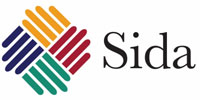 In July 2010, the Swedish International Development Cooperation Agency (Sida), through its program for Partner Driven Cooperation (Aktörssamverkan), announced a call for applications for grants to collaborative projects related to access to and use of research for the period 2010 – 2012. This program is not support to research but rather assisting partners in assessing and using research in policy formulation and innovation. Sida’s initiative for Partner Driven Cooperation is aiming to support sustainable cooperation relationships, and concerns only a few selected countries, namely China, India, Indonesia, Vietnam, South Africa, Botswana and Namibia. More information.
In July 2010, the Swedish International Development Cooperation Agency (Sida), through its program for Partner Driven Cooperation (Aktörssamverkan), announced a call for applications for grants to collaborative projects related to access to and use of research for the period 2010 – 2012. This program is not support to research but rather assisting partners in assessing and using research in policy formulation and innovation. Sida’s initiative for Partner Driven Cooperation is aiming to support sustainable cooperation relationships, and concerns only a few selected countries, namely China, India, Indonesia, Vietnam, South Africa, Botswana and Namibia. More information.
In December 2010, decisions were made. A total number of 32 projects were selected, out of which nine refers to Indo-Swedish collaboration projects. Information about all India related projects given grants.
Associate Professor Pia Olsson and the Nutritionist Amal Omer-Salim at IMCH are the recipients of one of these India related grants. They are given SEK 4.5 m for three years (2010-12) for a project entitled ”Using Evidence-Based Advocacy to Improve Infant and Young Child Feeding (IYCF), Health and Survival in India”. This is a collaboration between Breastfeeding Promotion Network of India (BPNI) and International Maternal and Child Health (IMCH), Department of Women’s and Children’s Health, Uppsala University, Sweden.![]()
The contact persons at BPNI are Arun Gupta, and J.P. Dadhich.
Project abstract: Millions of young children die each year around the world. The problem is most severe in India and Nigeria. Most of these deaths could be prevented if children were vaccinated, given vitamin capsules, had safe water to drink and were breastfed. Poor breastfeeding causes almost 13% of all the deaths.
The Breastfeeding Promotion Network of India and IMCH, Uppsala University are starting a project that will improve these conditions for mothers and children by, for example, providing correct information and support on breastfeeding. This will be done by widely sharing the latest scientific research in this field and gathering all those involved, including the media, to persuade the Indian government to extend its programs to include the poorer parts of Indian society. Improved coverage of specific nutrition interventions, such as early and exclusive breastfeeding, will reduce the rates of pneumonia and diarrhoea, which are the leading causes of child deaths. Such action thus is warranted in countries like India that has shown little improvement in feeding practices over the past decades and is not currently on track to achieve MDG 4. Lack of programmatic breastfeeding support to women is the main underlying factor as revealed by an assessment of policy and programmes regarding breastfeeding. This Partner Driven Cooperation Project between the Breastfeeding Promotion Network of India and IMCH, Uppsala University will use evidence-based advocacy to expand the provision of full maternity entitlements to all women and to provide women with accurate, unbiased information through skilled counselling and support in six of the worst States.
SASNET - Swedish South Asian Studies Network/Lund
University
Address: Scheelevägen 15 D, SE-223 70 Lund, Sweden
Phone: +46 46 222 73 40
Webmaster: Lars Eklund
Last updated
2011-04-28
